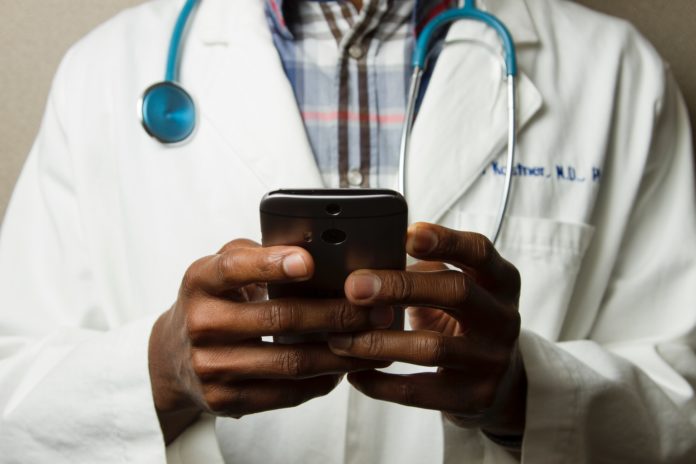Congress and the president gave Medicare some additional powers to relax the current restrictions surrounding payment for services provided via telephone, Video chat and through HIPAA secure technology for traditional Medicare. Additionally, Private insurance companies through both Medicare Advantage plans and standard commercial plans have been encouraged to expand telehealth services. This change may be the first in a series to expand the ability of health care providers to treat patients without direct contact. PRS will try and keep you posted on changes and provide suggestions to help navigate these changes.
Medicare:
Codes G2012 and G2010 are available for reporting telephone calls between a Physician or APP and a patient. These codes can reported to Medicare if the following are met:
- The patient is an established patient.
- The phone call does not result in the Physician or APP directing the patient to visit the office within the next few days to treat problem.
- The patient is aware that Medicare will be charged for the call before the call and the patient is responsible for co-payments or deductibles.
- The phone call was the not result of an E/M visit that happened within the previous 7 days.
- The request of the visit was initiated by the patient.
Codes 99421-99423 for physician or APP interactions with the patient and G2061-G2063 for those employed by and under the supervision of a physician or APP (eg. Nursing staff etc.)
These codes can reported to Medicare if the following are met:
- The patient is an established patient.
- The services are provided via HIPAA complaint means (Patient Portal) not result in the Physician or APP directing the patient to visit the office within the next few days to treat problem.
- The patient is aware that Medicare will be charged for the call before the call and the patient is responsible for co-payments or deductibles.
- The phone call was the not result of an E/M visit that happened within the previous 7 days.
- The request for advice via the portal was initiated by the patient.
The highlighted bullet for both sets of codes is under some scrutiny. Under the COIVD communication CMS has indicated that Patients can be directed or encouraged to call or seek assistance via the web portal for these services.
Medicare will continue to pay for telehealth services such as office visits, hospital visits and other patient monitoring services if the patient is located in a Medicare approved facility in a Health Professional Shortage Area as long as the interaction has live Audio and Visual connections. Newly enacted legislation gives Medicare and the Secretary of HHS the ability declare any region an emergency area which will extend the video visit capabilities to services provided to the patient in their home as long as they have “Video” phone call capabilities. We will have to monitor this for area designation and further guidance.
Private Payers and Medicare Advantage Plans
Private payers offering either Medicare Advantage Plans or commercial insurance coverage have broad leeway in most states to allow for coverage of medical care provided over the phone. This freedom is somewhat restricted by state law but is primarily controlled by the payer.
The President has met with insurance company leaders to encourage broader telehealth service coverage at least during the COVID 19 outbreak.
Many private payers have announced increase access for patients seeking treatment via Telemedicine. You will have to monitor what is allowed and what is not allowed for each payer. We are recommending that you closely monitor you top 4 payer websites to stay abreast of the coverage guidelines and recommendations.
Items to monitor:
- If covered are Telemedicine visits covered for all diagnoses or only COVID 19 related calls.
- If covered is a co-payment required.
- Can services be provided to New and Established payments.
- Are payments based on the current fee schedule.
- Is the only specific requirement for reporting telehealth services the use of Place of Service Code “02.”
- How long with the coverage last.
- Are there frequency limits.
- Do deductibles apply.
It is important to consider appropriateness of care and medico-legal risk for all that you do. We would encourage you to check with your Medical Mal-practice Company to make sure that you are covered for the services you intend to provide. Do not get pushed into providing services that you are not comfortable treating? As some patients will become irrationally afraid they may ask for more, reserve the right to require face to face care if necessary and possible. This is important to include in your policies within the office, policies posted on your websites and polices you ask your patients to sign.
Co-payments, Deductibles and Self-Pay services
With regard to policies for you patients you will need have your patients understand the services provided via phone, even during a pandemic, cost money. The services are subject to policies established by the plans they subscribe to and during this time of crisis these plans are changing.
We would recommend that although you do not have to have agreements like these for all services signed by the patient that you endeavor to get a written acknowledgement of both the financial responsibility and the limitation of your medico-legal liability as recommended by your Mal-practice Carrier. You may be able to have patients print documents from the web sign them and send pictures via text for inclusion in the record if you are not able to obtain the hard copy in the office or via text. Other options for these documents may include Docusign, webportal documents or secure email attachment.
Important information to be included for financial issues:
- Language from your current financial agreement/policy.
- Language that clearly indicates what you will do for non-covered services (ie. If a services is suspected of not being covered by your current insurance plan we will ask you for a payment of $_________ via credit card prior to the encounter. We will happy bill your insurance carrier and will refund you any amount collected above that allowed under your current coverage on the date the service was provided.)
- Language that allows for you not to bill the service to the insurance company if required. (ie. We have found that some payers will not allow for appropriate payment of services rendered remotely via, telephone or other HIPAA compliant means. We will notify you if the services you are requesting fall into this category. If you wish to receive these services you understand that the service you are requesting will not be billed to your insurance company and will not count to you annual deductible. You will be solely responsible in conjunction with your employer to determine if the services are eligible for payment under your FSA plan.) (You will also need to develop a form to be signed by the patient for each encounter if it is not to be reported to the insurance company. Under HIPAA a patient may elect to pay directly for services rendered and not allow the physician to release the medical record to the payer unless required by legal counsel.)
- How you will collect deductibles and co-payments. We recommend up front via credit card.
- Clear
paths to request and receive remote medical services.
- Call and schedule and appointment
- Connect via email
- Call with a nurse on demand (special extension)
Although the circumstances for pushing these policies in place so quickly are stressful and full of anxiety for all, the implementation of these services can be rolled set up and rolled out to your patients. PRS will provide more support and commentary as we learn more and we see more. We also appreciate your ideas to share with others.



